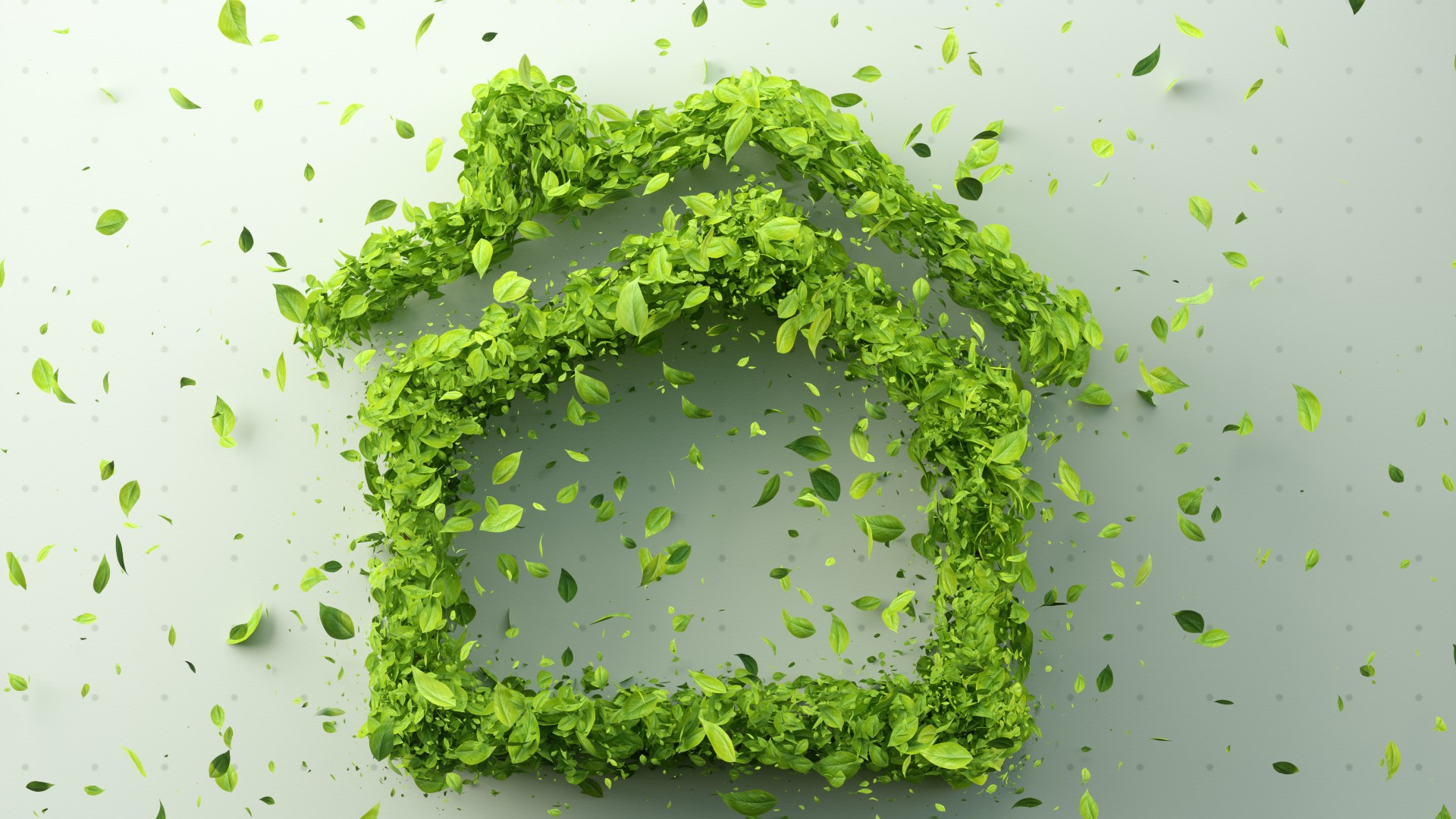4 tips to make your home more eco-friendly
You don't have to spend a bunch of money to make more sustainable choices


A free daily email with the biggest news stories of the day – and the best features from TheWeek.com
You are now subscribed
Your newsletter sign-up was successful
As the repercussions of climate change become increasingly apparent, making sustainable choices for your home feels more important than ever. There are tons of environmentally-friendly features you can buy to conserve energy and water, like Energy Star appliances and smart home technology. But you can also take smaller, more cost-effective steps. Here are four ways experts say you can work to create an eco-friendly home and save money in the process.
Invest in better windows
One of the biggest culprits of wasted energy is inefficient single-pane windows. Investing in insulated and laminated impact windows and doors instead will go a long way in reducing your home's overall energy consumption, Manny Angelo Varas, the president and CEO of homebuilder MV Group USA, said to Architectural Digest. Triple-glazed windows, also known as triple-pane windows, have a "much better insulation value, and with the right films, can cut down on not only solar heat gain but UV rays that can damage artwork, fabrics and finishes," added Leslie Schneeberger, an architect and owner of Schneeberger Collective, a sustainable firm based in Massachusetts.
Triple-glazed windows can be a pricey investment, costing hundreds or thousands of dollars. A more cost-effective solution is installing storm windows, which will "let you achieve similar results at one-third the cost," The Washington Post said. Storm windows are made of aluminum frames with high-efficiency coated glass and can fit over your existing windows inside or outside. They can save you 10% to 30% in heating and cooling costs, said Christian Kaltreider, a researcher at Pacific Northwest National Laboratory (PNNL), to the Post. You stand to rake in $100 to $300 in annual savings.
The Week
Escape your echo chamber. Get the facts behind the news, plus analysis from multiple perspectives.

Sign up for The Week's Free Newsletters
From our morning news briefing to a weekly Good News Newsletter, get the best of The Week delivered directly to your inbox.
From our morning news briefing to a weekly Good News Newsletter, get the best of The Week delivered directly to your inbox.
Switch to LED bulbs
Light-emitting diodes (LEDs) are frequently used for indicators and traffic lights — but they can also be employed in your home. LEDs are "today's most energy-efficient and rapidly developing lighting technology," said The Department of Energy. They use 90% less energy and last up to 25 times longer than regular incandescent bulbs. The latest generation of LEDs is also cheaper and more reliable than earlier versions. "You'll have plenty of hues to pick from, including amber and daylight," said the Washington Post. "If you're not sure if a fixture can be replaced [with an LED], the answer is yes." Edward Louie, an energy-efficiency engineer at PNNL, agrees: "For pretty much every single fixture, there's a way to do it," he said to the Post. Most LED lightbulbs can be purchased for around $3 a bulb, making it a cost-effective energy-saving move.
Close open holes or cracks around the house
Having poor insulation due to cracks and openings throughout your house — no matter how small — is one way to end up with high utility costs. Finding and sealing those holes both inside and outside can help better insulate your home and "make it more sustainable in the long run," U.S. News said. Some common areas to look for holes are doors, windows, attics, crawl spaces and utility rooms. Depending on where you find the holes, filling them can be as simple as replacing the weather stripping around a door, getting a new vent cover, adding foam spray, or caulking. Insulating the attic or closing off the crawlspace has been "proven to improve the efficiency of a home and make it that much more appealing to buyers," said U.S. News.
Reduce your water flow
Water conservation is another essential part of maintaining a sustainable home, "particularly in drought-prone areas of the country," said U.S. News. Switching to low-flow toilets can "reduce water usage by 20% or more, with several costing less than $200," Richard Blumenberg, an architect with expertise in green building practices, said to the outlet. You can also opt for low-flow faucets and shower heads; but if you don't want to switch out your faucet, you can install an aerator on your existing faucet. They cost around $5 to $10 and reduce water use without compromising water pressure or flow, Blumenberg said.
A free daily email with the biggest news stories of the day – and the best features from TheWeek.com
Theara Coleman has worked as a staff writer at The Week since September 2022. She frequently writes about technology, education, literature and general news. She was previously a contributing writer and assistant editor at Honeysuckle Magazine, where she covered racial politics and cannabis industry news.
-
 Bad Bunny’s Super Bowl: A win for unity
Bad Bunny’s Super Bowl: A win for unityFeature The global superstar's halftime show was a celebration for everyone to enjoy
-
 Book reviews: ‘Bonfire of the Murdochs’ and ‘The Typewriter and the Guillotine’
Book reviews: ‘Bonfire of the Murdochs’ and ‘The Typewriter and the Guillotine’Feature New insights into the Murdoch family’s turmoil and a renowned journalist’s time in pre-World War II Paris
-
 Witkoff and Kushner tackle Ukraine, Iran in Geneva
Witkoff and Kushner tackle Ukraine, Iran in GenevaSpeed Read Steve Witkoff and Jared Kushner held negotiations aimed at securing a nuclear deal with Iran and an end to Russia’s war in Ukraine
-
 How climate change is affecting Christmas
How climate change is affecting ChristmasThe Explainer There may be a slim chance of future white Christmases
-
 Why scientists are attempting nuclear fusion
Why scientists are attempting nuclear fusionThe Explainer Harnessing the reaction that powers the stars could offer a potentially unlimited source of carbon-free energy, and the race is hotting up
-
 Canyons under the Antarctic have deep impacts
Canyons under the Antarctic have deep impactsUnder the radar Submarine canyons could be affecting the climate more than previously thought
-
 NASA is moving away from tracking climate change
NASA is moving away from tracking climate changeThe Explainer Climate missions could be going dark
-
 What would happen to Earth if humans went extinct?
What would happen to Earth if humans went extinct?The Explainer Human extinction could potentially give rise to new species and climates
-
 Bacteria can turn plastic waste into a painkiller
Bacteria can turn plastic waste into a painkillerUnder the radar The process could be a solution to plastic pollution
-
 Sodium batteries could make electric flight viable
Sodium batteries could make electric flight viableUnder the Radar Low-cost fuel cell has higher energy density and produces chemical by-product that could absorb CO2 from the atmosphere
-
 Florida has a sinking condo problem
Florida has a sinking condo problemUNDER THE RADAR Scientists are (cautiously) ringing the alarms over dozens of the Sunshine State's high-end high-rises
